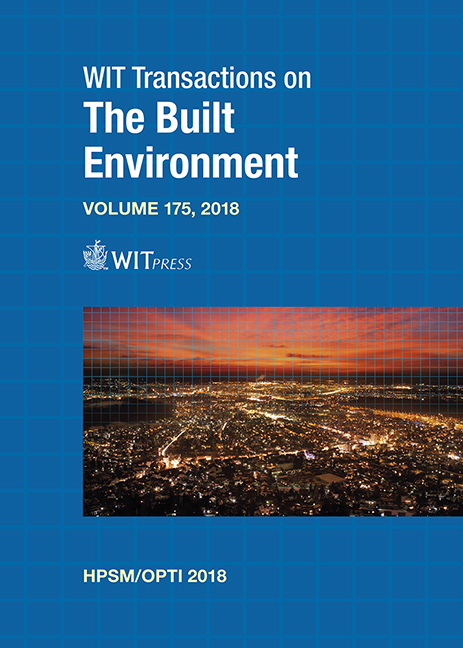OPTIMISING SURVEYS AND RELIABILITY ASSESSMENTS OF HISTORIC CAST-IRON COLUMNS
Price
Free (open access)
Transaction
Volume
175
Pages
12
Page Range
71 - 82
Published
2018
Size
392 kb
Paper DOI
10.2495/HPSM180081
Copyright
WIT Press
Author(s)
KAREL JUNG, JANA MARKOVA, MIROSLAV SYKORA
Abstract
Cast iron structures mostly date back to the second half of the 19th century. Material properties vary due to different composition and production techniques that have been used in different regions over decades. This is why it is of crucial importance to obtain case-specific information on properties of historic structures. Many historic metal structures do not fulfil requirements of present standards. Decisions about adequate construction interventions should be based on complex assessment of structural reliability. In this contribution, the material properties of an iron column are investigated and the key considerations for reliability assessment are presented. Three fundamental issues are addressed to optimise surveys and reliability assessments of cast iron columns: 1) an optimum number of material tests; 2) the selection between a finite element (FE) and analytical model; and 3) the target reliability level for a historic structure. It is shown that uncertainties due to limited test data, variability of material and geometrical properties, and resistance model uncertainty can be treated by a semi-probabilistic verification method. As a first approximation, five tensile tests might be considered as an optimum survey strategy. The application of FE models is more demanding than that of simplified analytical formulas, but it can better reflect structure-specific conditions and may increase structural resistance by about 15%. Optimum target reliability level for existing structures with a cultural heritage value could be lower than that for structural design and the assessment value of resistance may increase by about 20% for a reduced target level.
Keywords
heritage structures, reliability assessment, cast iron, structural reliability





